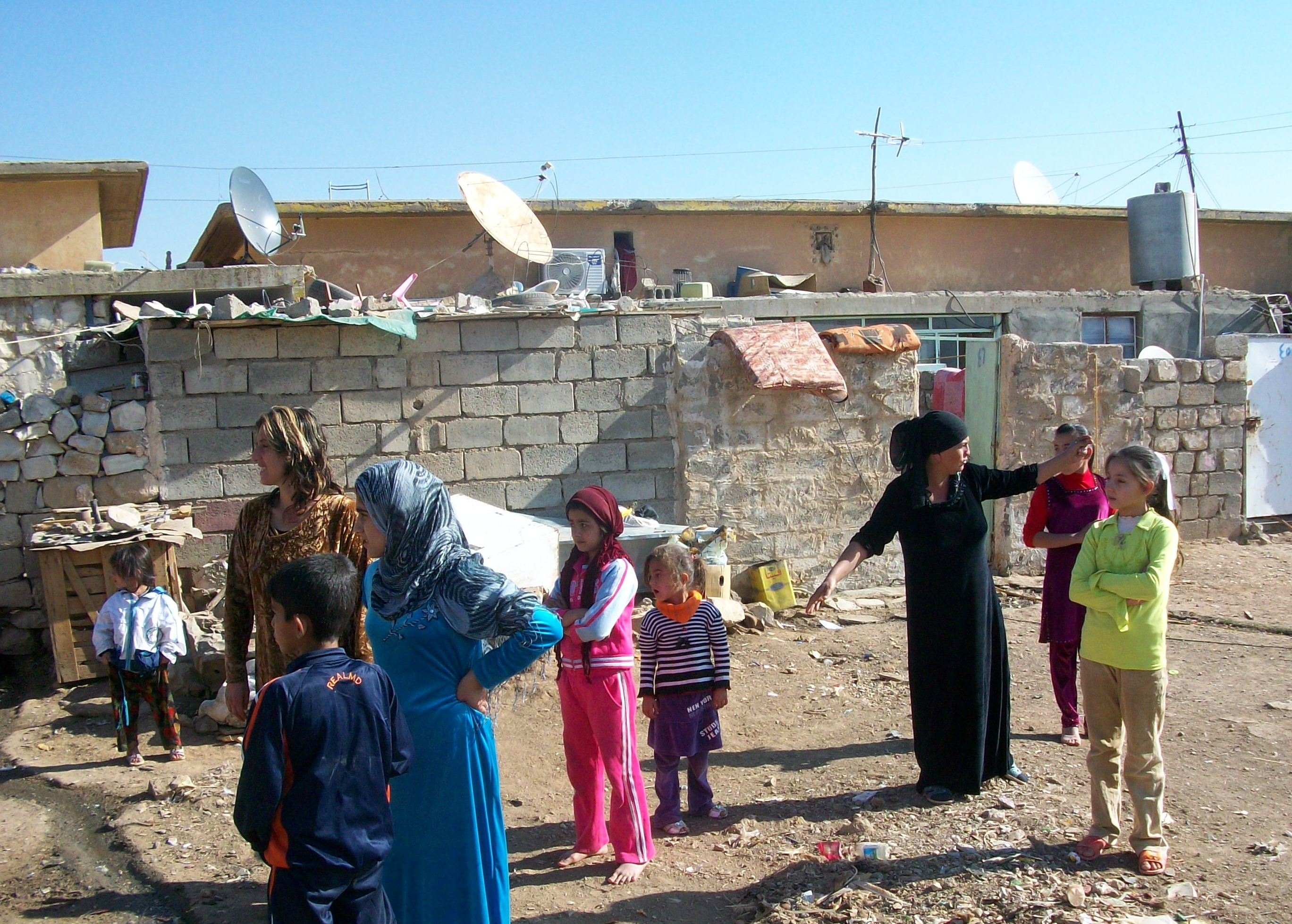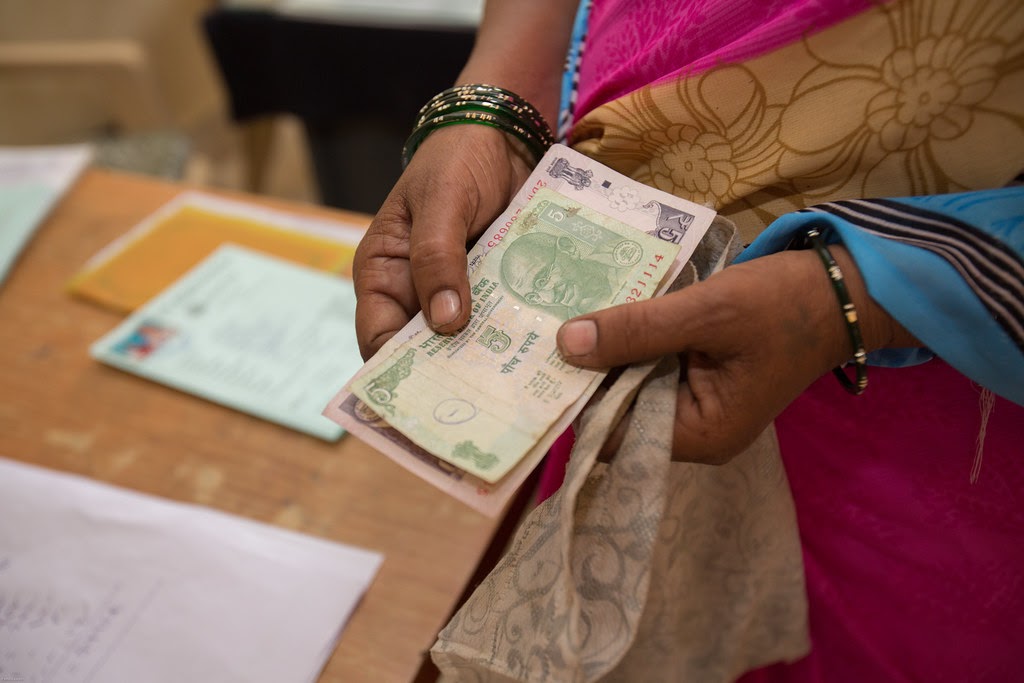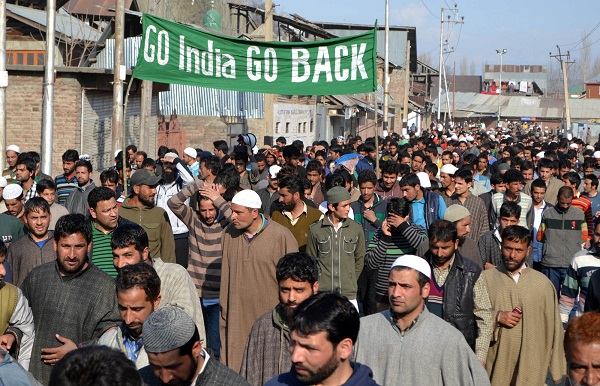
As the violence in Iraq slips from western headlines and the coalition mission appears accomplished, there is a false sense of calm in this troubled country. An unanswered question of who controls the Northern city of Kirkuk has threatened to throw the most promising region of the country into war. To ethnic Kurds, the most contentious issue is the future of Kirkuk. Kirkuk is the equivalent of Jerusalem to Christians, Jews, or Muslims to Iraqi Kurds — the assumed place of origin of their people, a holy land worth fighting and dying for. The federal government based in Baghdad puts Kirkuk in its sphere of influence, governing the city much to the ethnic Kurds chagrin. The city sits squarely on the border of the autonomous Kurdish Regional Government (KRG), and the Republic of Iraq based in Baghdad. KRG in the north wishes to incorporate Kirkuk into their sphere of autonomy to strengthen their power. The city sits on massive oil wealth which both the Kurdish and Baghdad federal governments have their eye on. It is estimated that Kirkuk is near the fourth largest oil field in the world. With the economic incentive of potentially billions of untapped dollars in oil wealth, all the sides should work to prevent war. Tragically this is not so. The potential for violence is on the mind of every State Department diplomat, Kurdish politician, and citizen of Kirkuk. If the city does explode into sectarian violence, it could dwarf the pacification of Baghdad in 2007. A clear power-sharing plan must be put forward in order to stop this explosive situation from plunging Iraq back into another ethnic war.
For the majority of the war Northern Iraq has been a peaceful stretch of land that Coalition forces have largely been able to ignore. It was not always this way; Northern Iraq was the scene of a brutal civil war soon after Sadaam’s forces left in 1991. The factions were composed of the two dominant families in Northern Iraq, the Talabani and the Barzani families. Each family controlled the Patriotic Union of Kurdistan (PUK) and the Kurdish Democratic Party (KDP) political organizations respectively in a brutal civil war that ended with the Washington Agreement in 1998. Talabani and Barzani agreed to share power and oil profits in the agreement.[i] The Kurds new found prosperity is the result of a solid voting bloc that does not resemble their factionalized Sunni and Shiite Arab partners to the south.
The Kurdish people have been a traditional ally of the United States since the end of the first Gulf War in which the United States imposed a non-fly zone to ensure their protection and sovereignty. They now find themselves in the position to tilt the balance of power in Iraqi politics. The Kurdish Governed Republic in Northern Iraq is the only Kurdish run administration in the region, providing a haven to refugees and other Kurds. KRG has solidified its borders, establishing strong ties to western nations and ensuring its sovereignty from the central government in Baghdad. To be in Northern Iraq is to see the “other Iraq” as the KRG government has marketed itself. In Sulimanya, construction is brisk with cranes thirty stories high constructing new office buildings. The emerging markets have brought an influx of foreign workers and expatriates. Most importantly, a stable government of bureaucrats and municipalities regulates and runs the newfound prosperity. With KRG’s house in order, government bureaucrats are looking to the south and the traditional Kurdish city of Kirkuk to bring into their fold.
The repercussions of Sadaam’s “Arabization” policy are at the heart of the issue. An estimated five hundred thousand Kurds left or were forced out of the city by Saddam’s regime, making the city split between Arabs, Kurds, and Turkmen. Both sides of the dispute cite several censuses determining the ethnic breakdown of the city over the years. Arabs cite a Saddam era number in 1997 where an Arab majority was determined to stand at nearly sixty percent.[ii] Ethnic Turkmen claim a 1957 census in which they were the majority and the Kurds controlled the outlaying area.[iii] Kurds claim to be the founders of the city and claim that historically, it has always been so.
An Arab-led ‘Commission on the Normalization of the Status of Kirkuk’ was formed in 2007 with the intended goal of finding a resolution for all parties. Diplomats desperately want to circumvent the potential for a violent process. A plan was struck in which Arabs would be paid to return from where they came from before Saddam’s Arabization policy took effect. Kurds would be paid to move back to Kirkuk if they had been forcibly relocated. Results of this policy have been mixed. Many Kurds remain in KRG but travel to Kirkuk to collect resettlement checks. Large numbers of Arabs remain in the city despite being paid twice as much to leave.[iv] Allegations of bribery and fraud have plagued the commission and interference from Saudi Arabia, Turkey, and the United States has stymied the process. Kurdish refugees interviewed made it clear that policy from KRG government aims to create an environment unsuitable to those Kurds that fled Saddam Hussein’s regime. The goal of these policies is to force them back to Kirkuk in order to have a majority in the city. Ironically, Sunni and Shiite refugees fleeing from the south are relatively well taken care of in Sulimanya and other KRG cities. A census determining the ethnic breakup of Kirkuk would tear the city up and terrifies the population. This conflict cannot be solved with a simple number count to determine the majority.
With all the ethnic groups having a legitimate claim and the impossibility of one group vacating the city completely, a plan in which revenue from the vast oil wealth of the region can be shared must be struck. Also, trust building between the ethnicities should also be a tenet of the plan. Mixed military units or joint patrols can build cooperation and trust. It will also alleviate the suspicion that the other side is plotting a first strike. Strong pressure from the State Department on both sides of the issue can encourage this process. KRG and the federal Government in Baghdad must be shown that resorting to violence would not be beneficial to either party. With the threat of Al Qaeda in Mesopotamia still operating in the region, the government of KRG should remember that terrorist attacks are not the actions of all Arabs. The terrorist group has targeted Kirkuk in the past in an attempt to disrupt the operations of the Baghdad government and sow discontent. Kurdish leaders should exercise the restraint that prominent Shiite leaders did in 2006 when Al Qaeda attempted to goad them into a full-blown sectarian war.[v] The Central Government can do this by keeping pressure on Al Qaeda in Mesopotamia and continuing to disrupt their operations. The Shiite led government in Baghdad must keep their shaky coalition together by working with the Kurds and resolving their demands. If not, then the Kurds could pull out of the coalition and partner with the Sunnis to give them the reins of government.
Politicians often are tempted to rally citizens around ethnic banners to consolidate power and increase personal standing. As proven historically in the Balkans, the gains of this policy are short lived and lead to financial devastation and isolation from the world. KRG would lose much of its foreign investors if war were to break out, for no one will put money into an unstable conflict zone. Baghdad can little afford to embroil itself in yet another civil war. Therefore the leaders of these forces must reign in their party and tightly control the message that comes out of their respective camps. The best way to alleviate this threat would be to establish direct communications to the top leaders of the Turkmen, Kurds, and Arabs. The Kurds have a tight control on their people with a firm government in place.[vi] With such a structure in place, the potential for deviation from the party line is decreased. However it is not proven that if fighting breaks out on the street, that the Kurdish people will escalate the situation into a full-blown war.
As the situation stands, large populations of Arabs and Kurds are currently being manipulated in an attempt to dominate the ethnicity of Kirkuk from both Baghdad and KRG, creating tension. The Central Government of Iraq, stationed in Baghdad wants Kirkuk to remain in their fold in an attempt to remain in control of its oil supply. Ministers interviewed in KRG expressed that they would never give up on the issue of Kirkuk. Some analysts of the region suspect that the Kirkuk issue could divisively separate KRG from the Baghdad once and for all. If this is true, it could be the scene of the worst violence yet in Iraq. Therefore it is imperative that a power-sharing plan be struck soon with the two governments.
[i] 2010. “Political Conditions.” Iraq Country Review 10-126. Business Source Complete, EBSCOhost (accessed February 2, 2011).
[ii] Gunter, Michael M., and M. Hakan Yavuz. 2005. “The Continuing Crisis in Iraqi Kurdistan.” Middle East Policy 12, no. 1: 122-133. Academic Search Premier, EBSCOhost (accessed February 3, 2011).
[iii] Gunter, Michael M., and M. Hakan Yavuz. 2005. “The Continuing Crisis in Iraqi Kurdistan.” Middle East Policy 12, no. 1: 122-133. Academic Search Premier, EBSCOhost (accessed February 3, 2011).
[iv] Rafaat, Aram. “Kirkuk: The Central Issue of Kurdish Politics and Iraq’s Knotty Problem.” Journal of Muslim Minority Affairs 28, no. 2 (August 2008): 251-266. Academic Search Premier, EBSCOhost (accessed February 3, 2011).
[v] Brahimi, Alia. 2010. “Crushed in the Shadows: Why Al Qaeda Will Lose the War of Ideas.” Studies in Conflict & Terrorism 33, no. 2: 93-110. Military & Government Collection, EBSCOhost (accessed February 3, 2011).
[vi] Brahimi, Alia. 2010. “Crushed in the Shadows: Why Al Qaeda Will Lose the War of Ideas.” Studies in Conflict & Terrorism 33, no. 2: 93-110. Military & Government Collection, EBSCOhost (accessed February 3, 2011).



